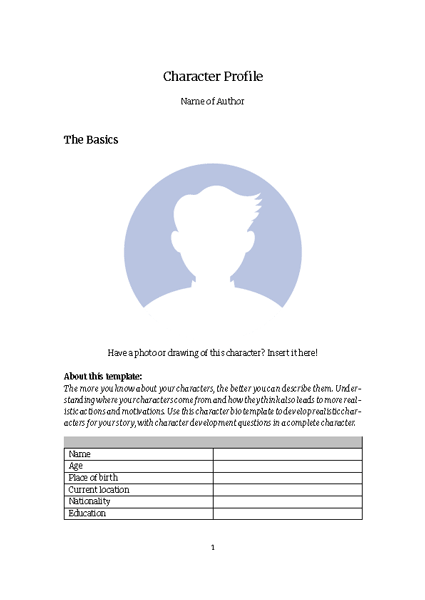Writing Comedy Screenplay - Screenplay Tips for Writing Comedy
Crafting stories that tickle funny bones is a skill that can captivate and entertain like no other. But behind every hilarious scene lies a carefully constructed script, crafted with skill. Read on to find out more about how you can write your very own comedy screenplay!

If you've ever found yourself chuckling at comedic films or television shows and thought, "I want to create something like that,", it's time to set aside your fears and doubts and dive right into trying your hand at writing a comedy screenplay.
Writing a comedy screenplay can be a thrilling and rewarding experience, but it also comes with its unique set of challenges. From developing comedic concepts, creating humorous characters, mastering comedic timing, constructing comedic structure, crafting hilarious dialogue to constructing funny and engaging plots, there's a lot to learn and explore.

Whether you're a novice writer looking to dip your toes into the comedic genre or an experienced storyteller aiming to sharpen your comedic skills, writing a comedy screenplay for the first time can feel like stepping onto a comedy club stage with all eyes on you. Read on to find out more about what makes a comedy screenplay what it is, and for some tips about how to go about starting to write one of your own.
What is a Comedy Screenplay?
A comedy screenplay is a written script that is specifically designed to entertain and elicit laughter from audiences. It is a blueprint for a comedic film or television show, outlining the story, dialogue, and actions of the characters. The screenplay incorporates comedic elements such as humor, wit, wordplay, physical comedy, and situational comedy to engage viewers and generate laughs. It typically follows a structure that includes setups, punchlines, comedic timing, and comedic situations that drive the plot forward. A well-crafted comedy screenplay aims to deliver humor and amusement through clever storytelling, comedic timing, and engaging characters.
Key Elements of a Comedy Screenplay
Several key elements contribute to making a comedy screenplay distinct:
1. Humor and Comedy
The primary focus of a comedy screenplay is to create humor and evoke laughter. It employs various comedic techniques such as witty dialogue, wordplay, physical comedy, absurd situations, comedic timing, and clever punchlines.
2. Engaging Characters
Memorable and well-developed characters play a crucial role in a comedy screenplay. They often have distinct personalities, quirks, and flaws that contribute to comedic situations and generate laughter. Their interactions and comedic dynamics drive the humor of the story.
3. Comic Premise or Concept
A strong comic premise forms the foundation of a comedy screenplay. It could be a humorous situation, a comedic misunderstanding, or a unique comedic concept that sets the story in motion and provides a constant source of humor throughout the narrative.
4. Conflict and Obstacles
Comedy often arises from conflict and obstacles that characters face. These challenges can be both external and internal, creating humorous dilemmas, misunderstandings, or comedic tension that propel the story forward and elicit laughter.

5. Comedic Structure and Timing
A well-crafted comedy screenplay adheres to comedic structure and timing. It incorporates setups and payoffs, comedic twists, and well-timed punchlines to maximize comedic impact. It balances pacing, rhythm, and comedic beats to create a smooth flow of humor.
6. Optional Satire or Social Commentary
Some comedy screenplays utilize satire or social commentary to add depth and relevance to the humor. By cleverly poking fun at societal norms, conventions, or stereotypes, these comedies can offer a humorous critique of real-world issues.
7. Resolution and Catharsis
Like any screenplay, a comedy screenplay needs a satisfying resolution. It typically concludes with a comedic climax or resolution that ties up loose ends, resolves conflicts, and leaves the audience feeling uplifted, amused, and satisfied.
Tips for Writing a Comedy Screenplay
1. Establish a Strong Comic Premise.
Establishing a strong comic premise is crucial when writing a comedy screenplay as it serves as the backbone of the entire script. A compelling premise captures the audience's attention, piques their curiosity, and sets the stage for a comedic journey. It provides a clear direction for the story, guiding the writer's creative decisions and ensuring a consistent and focused approach to humor.
A strong premise helps differentiate the screenplay in a competitive industry, making it stand out and attracting interest from readers, agents, and producers. By generating comedy naturally and allowing the humor to flow from the core concept, a solid premise creates a foundation for hilarious situations, clever dialogue, and memorable characters. Ultimately, a well-established comic premise sparks the audience's expectations, fuels the writer's creativity, and forms the basis for an entertaining and unforgettable comedy screenplay. So start with a solid comedic concept or premise that sets the foundation for your story. A unique and intriguing idea with inherent humor will captivate your audience from the get-go.

2. Develop Memorable and Comedic Characters.
Developing memorable and comedic characters is crucial when writing a comedy screenplay as they are the driving force behind the laughter and audience engagement. Characters with distinct personalities, quirks, and comedic traits become the catalysts for comedic situations and interactions. They bring the humor to life through their witty dialogue, humorous reactions, and comedic timing.
Memorable characters with comedic depth create a lasting impression on the audience, making them emotionally invested in the story and its comedic outcomes. By crafting unique and relatable comedic characters, writers can amplify the comedic impact of their screenplay, evoke laughter, and establish a strong comedic voice. These characters become the audience's companions on a laughter-filled journey, ensuring a memorable and enjoyable comedy experience.
The process of character development, no matter who that character is in your story and what the genre of your book is, is crucial in ensuring that they are well-rounded and robust. All-rounded character profiles allow writers to delve into the psyche of their characters and tease their personalities out throughout the story; in this case, would allow you to tease out their comedic persona in effective ways.

JotterPad's Character Profile template allows you explore multiple aspects of characterization and can guide you in developing realistic characters for your story, with character development questions in a complete character. With this template, you can start of by stating your character's name, place of birth, educational background, and occupation amongst others to build their background information first. After this, you can move on to building their physical appearance, by specifying their height, skin tone, hair color, any prominent features, gait and other characteristics that your readers would remember them by.
3. Master Comic Timing.
Mastering comedic timing is crucial when writing a screenplay, as it is the key to maximizing the comedic impact and generating laughter. Effective comedic timing involves precisely delivering jokes, punchlines, and humorous beats for optimal comedic effect. It requires a deep understanding of rhythm, pacing, and the ability to build anticipation and surprise. By mastering comedic timing, writers can ensure that comedic moments land with precision, creating a well-crafted and seamless flow of humor throughout the screenplay.
Well-timed comedic beats can heighten the comedic tension, enhance the punchlines, and generate uproarious laughter from the audience. Whether it's the pause before a punchline or the perfectly timed reaction, mastering comedic timing allows writers to harness the full potential of their comedic material, making their screenplay an enjoyable and hilarious experience for viewers.
4. Utilize Different Types of Humor.
Utilizing different types of humor is crucial when writing a comedy screenplay as it adds variety, depth, and richness to the comedic experience. Comedy is subjective, and what may be hilarious to one person might not resonate with another. By incorporating diverse types of humor such as wordplay, physical comedy, satire, sarcasm, absurdity, or observational humor, writers can cater to a broader audience and increase the chances of eliciting laughter. Different types of humor also allow for a range of comedic moments, from quick-witted banter to visual gags or clever one-liners.
This diversity keeps the comedy fresh and engaging throughout the screenplay, preventing it from becoming predictable or one-note. By utilizing a mix of comedic techniques, writers can create a multi-layered and captivating comedic experience that appeals to a wide range of viewers and ensures a memorable and laughter-filled journey. Take time to explore various comedic techniques such as wordplay, physical comedy, sarcasm, irony, parody, satire, and absurdity. Mix and match these elements to create a diverse and engaging comedic experience.

5. Focus on Dialogue.
Focusing on dialogue is crucial when writing a comedy screenplay as it serves as the primary vehicle for delivering humor and developing comedic characters. Comedy thrives on clever wordplay, witty banter, and well-crafted punchlines, all of which are conveyed through dialogue. Strong comedic dialogue not only generates laughter but also reveals the unique comedic voices and personalities of the characters. It allows for humorous exchanges, snappy comebacks, and comedic misunderstandings that propel the story forward. By giving careful attention to the dialogue, writers can craft lines that are sharp, memorable, and perfectly timed, maximizing the comedic impact of each scene.
Whether it's setting up jokes, delivering punchlines, or creating humorous conflicts, focusing on dialogue ensures that the comedy in the screenplay shines through, making it an engaging and entertaining comedic experience for the audience.
6. Use Visual Comedy.
Comedy is not just about words but also visual gags and physical humor. Using visual comedy is important when writing a comedy screenplay because it adds an extra layer of humor and enhances the comedic impact of the story. Visual gags, physical comedy, and comedic actions engage the audience's sense of sight, allowing them to visually experience the humor. These elements can range from slapstick moments to clever visual setups and payoffs. Incorporating visual comedy not only provides a visual spectacle but also creates memorable and laughter-inducing moments that stick with the audience long after the film or TV show has ended.
Visual comedy has a universal appeal and can transcend language barriers, making it accessible to a wide range of viewers. By utilizing visual humor, writers can effectively complement the comedic dialogue, heighten the overall comedic experience, and create a visually entertaining screenplay that leaves the audience roaring with laughter.
7. Embrace the "Rule of Three".
Embracing the Rule of Three is important when writing a comedy screenplay because it leverages the power of repetition and timing to enhance the comedic effect. The Rule of Three suggests that things that come in threes are inherently funnier, and it has been a longstanding comedic principle. By setting up a pattern or series of comedic elements and delivering the punchline or comedic twist on the third repetition, writers can create a sense of anticipation and surprise that generates laughter.
The rule of three helps establish a rhythm, builds comedic tension, and allows the joke or gag to land with maximum impact. It provides a structured framework for comedic timing and ensures that the punchline is delivered at the perfect moment. Embracing the Rule of Three adds a layer of predictability, followed by a delightful twist, that resonates with the audience's comedic sensibilities, making the comedy screenplay more engaging, memorable, and, ultimately, funnier.
8. Balance Comedy with Emotional Depth.
Balancing comedy with emotional depth is important when writing a comedy screenplay because it adds depth, relatability, and resonance to the story.
While laughter is the primary goal of a comedy, incorporating emotional moments allows the audience to connect with the characters on a deeper level. It humanizes the characters, making them more than just vehicles for jokes. By infusing the screenplay with genuine emotions, such as love, heartbreak, or personal growth, writers create a well-rounded narrative that explores the complexities of the human experience. The contrast between comedic and emotional moments creates a dynamic and engaging story that keeps the audience invested. It allows for a range of emotions, making the comedy more impactful and the story more meaningful. Balancing comedy with emotional depth not only entertains but also leaves a lasting impression, creating a comedy screenplay that resonates with the audience long after the laughter subsides.

9. Rewrite and Polish!
Rewriting and polishing is vital when writing a comedy screenplay because it allows for refinement, fine-tuning, and elevating the comedic elements to their fullest potential. Writing a successful comedy screenplay requires iterative improvement and constant honing of the material. Through rewriting, writers can sharpen the comedic timing, strengthen the jokes, and streamline the comedic flow. It provides an opportunity to eliminate any weak or redundant elements, ensuring that every scene contributes to the overall comedic impact.
Polishing the screenplay involves paying attention to the nuances of the dialogue, perfecting the comedic setups, and fine-tuning the visual gags. By seeking feedback from others and incorporating constructive criticism, writers can gain valuable insights into what works and what needs improvement. Rewriting and polishing create a polished, professional final product that maximizes the comedic potential, increasing the chances of capturing the audience's laughter and delivering an exceptional comedy screenplay.
Comedy is a tricky and subjective genre, so be open to experimentation and trust your comedic instincts. Keep refining your comedic skills, study successful comedy screenplays, and most importantly, have fun with the process. The above-mentioned tips such as balancing the comedy in your story with emotional gravity, focusing on effective dialogue, spending time mastering comedic timing, and by using helpful writing templates that can aid your brainstorming, writing comedy can be a less daunting task.
Remember, comedy writing is a delightful journey of laughter, creativity, and endless possibilities. Have fun while you're at it!
All the best!

